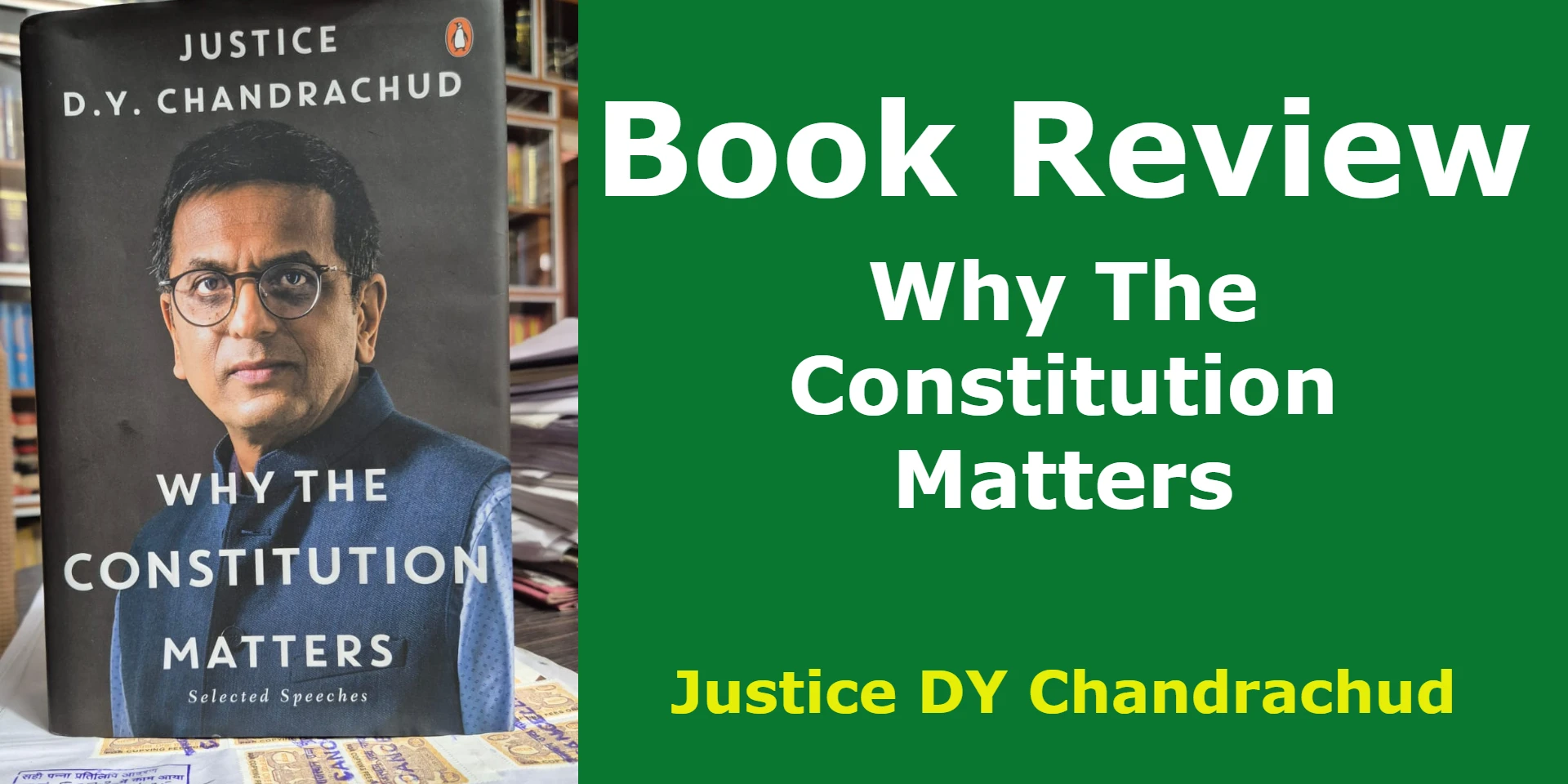Book Review: “Why the Constitution Matters” by Dr. D.Y. Chandrachud
The book “Why the Constitution Matters”—a compilation of 34 speeches delivered by the former Chief Justice of India, Dr. D.Y. Chandrachud—is one of the most remarkable works to have emerged in recent times. We have often heard Justice Chandrachud’s powerful words in courtrooms and public lectures, but reading these speeches collectively is a truly enriching experience.
While I am certain that Justice Chandrachud has delivered many more noteworthy speeches beyond the ones included here, this compilation appears to bring together some of his finest and most thought-provoking addresses. Each chapter stands as a testament to his intellect, his deep constitutional insight, and his commitment to human values.
Across these 34 speeches, the author explores diverse themes—each rooted in or influenced by the Indian Constitution. What makes this compilation exceptional is that every speech feels more compelling than the previous one. The reader can sense the rhythm and progression as one moves through the chapters—each seamlessly connecting with the next, forming a coherent narrative rather than a mere assortment of speeches.
Reading these chapters offers a glimpse into Justice Chandrachud’s persona—the depth of his research, the elegance of his writing, and the subtle difference between his judicial reasoning and his reflective, almost philosophical, public voice. His treatment of the Constitution is not academic alone—it is humane, vibrant, and alive to the challenges of our times.
This 489-page book is a valuable recommendation for students, lawyers, judges, and anyone who wishes to understand why the Constitution continues to matter in modern India. It is a book that can be read in a single sitting or savored one chapter at a time—each chapter independent yet interconnected, collectively leading to an answer to the question posed in the title.
Having listened to Justice Chandrachud’s speeches in person, I can affirm that his delivery is as engaging as his writing. He holds the audience’s attention effortlessly—his thoughts never fail to inspire or provoke reflection.
In sum, “Why the Constitution Matters” is not just a collection of speeches—it is a living conversation about democracy, justice, and the enduring spirit of the Indian Constitution.
A few lines from his writing that would force you to read this book.
The Constitution is an instrument which lives and breathes. It is not a static manuscript but a framework crafted to evolve over time. A Constitution which cannot adapt to changing times risks irrelevance. What gives our Constitution an enduring value is the ability to respond to changing realities. Democracy is not confined to the act of casting a vote or the holding of free elections. It is a continuing process, shaped by competing interests, negotiated by compromises, and moulded by institutions entrusted with the function of governance. At its core, democracy is sustained by reflection, challenge and renewal. The drafters of the Constitution were prophetic: They foresaw that the questions that confront Indian society would change over the years. However, the answers would always be found in the enduring spirit of the Constitution to adapt and its effectual working by the people it seeks to govern, which is why the Constitution matters.
The ideals laid down long ago still govern us today and are the foundation of what a better future might look like a future that must be affected by us collectively as a democracy and as a people. This sentiment is captured by the words of Dr Ambedkar: 'However good a constitution may be, it is sure to turn out bad because those who are called to work it happen to be a bad lot. However bad a constitution may be, it may turn out to be good if those who are called to work happen to be a good lot. The Constitution works even if you don't believe in it or even if it doesn't matter to you-it has been working all this while. An anecdote from the physicist Niels Bohr's life explains this. Surprised at seeing a horseshoe above the door of Bohr's country house, a fellow scientist visiting him exclaimed that he did not share the superstitious belief regarding horseshoes keeping evil spirits out of the house, to which Bohr snapped back: 'I don't believe in it either. I have it there because I was told that it works even when one doesn't believe in it at all. And that is why the Constitution matters-because it works even for those who don't believe in it.

